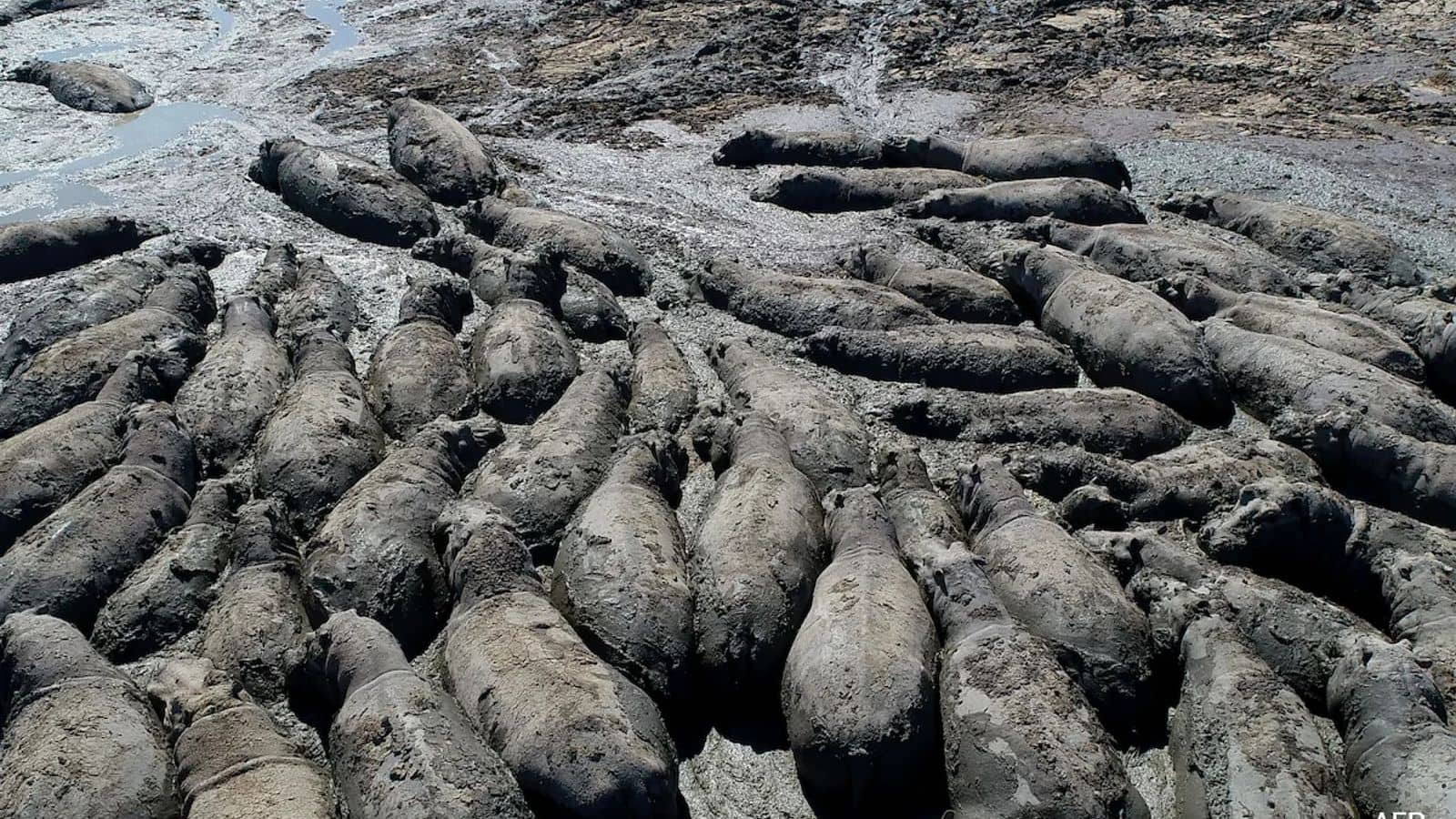
Herds of endangered hippos trapped in mud in drought-hit Botswana
What's the story
Herds of endangered hippos trapped in the mud of dry ponds in drought-stricken Botswana are at risk of dying, conservation officials told AFP on Friday. Southern Africa has been plunged into a severe drought that has threatened harvests and caused millions to go hungry as a result of the El Nino weather phenomenon. In northern Botswana, near Okavango Delta wetlands, hippos are being forced to seek natural water sources around Maun due to the drying up of the Thamalakane River.
Wildlife struggle
Botswana is home to one of the largest hippo populations
"The river system dries up and animals are in a compromised situation," said Lesego Moseki, a representative for the Department of Wildlife and National Parks (DWNP) in Gaborone. Botswana is home to one of the largest concentrations of wild hippos globally, with numbers estimated between 2,000 to 4,000 by the International Union for Conservation of Nature (IUCN). "The riverine vegetation is poor and the hippo in Ngamiland depend on the water flowing through the Okavango Delta systems," Moseki further explained.
Habitat intrusion
Deprived of water access, hippos can become aggressive
Hippos have thick but sensitive skin, so they must bathe frequently to avoid sunburn and typically reside in humid climates. Deprived of water access, they can become aggressive and encroach on human settlements. Local authorities are advocating for these hippos to be relocated to reserves in order to avoid potential human-animal conflicts. The drought began in Botswana in October 2023 and has gradually intensified and spread over Angola, Zambia, Zimbabwe, and Namibia, affecting the majority of southern Africa today.